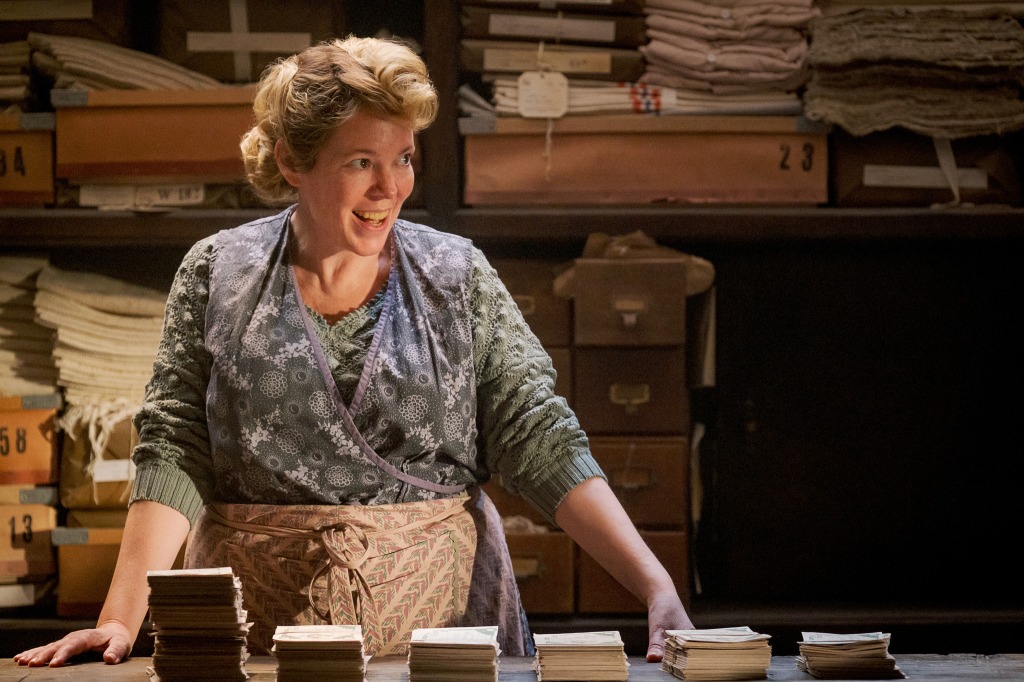Director: Wes Ball
Cast: Owen Teague, Freya Allan, Kevin Durand, Peter Macon, William H. Macy, Travis Jeffrey, Lydia Peckham, Neil Sandilands, Sara Wiseman
Genre: Action/Sci-fi
Run Time: 145 min
Opens: 9 May 2024
Rating: PG13

It’s a common complaint that most movies that get made seem to be reboots or sequels, and it is true that Hollywood is perhaps overly reliant on established intellectual property (IP). However, it is possible for franchise extensions to be done well, and the Planet of the Apes reboot trilogy is often cited as one of the best examples. Now, that series continues with Kingdom of the Planet of the Apes.
It is around 300 years after the events of War for the Planet of the Apes. Ape civilisation has advanced, while humans have regressed, with the Simian virus rendering much of the remaining human population feral and mute. Generations after he led the ape revolution, Caesar is a revered figure. Noa (Owen Teague) is a young chimpanzee who finds the members of his clan, including his mother Dar (Sara Wiseman) and his friends Anaya (Travis Jeffrey) and Soona (Lydia Peckham), captured by a rival clan of apes. Noa tries to find them and is joined by orangutan Raka (Peter Macon) and a mysterious human woman named Mae (Freya Allan), but whom the apes dub “Nova”. Noa’s compatriots have been captured by Proximus Caesar (Kevin Durand), a bonobo who has declared himself king. Noa and Mae must form an uneasy alliance to defeat Proximus Caesar and free Noa’s friends and family from his iron grip.

Kingdom of the Planet of the Apes features cutting-edge visual effects but has the spirit of an old-fashioned adventure. Filmed mostly on location around New South Wales, Australia, the movie has a welcome tactility, and all the environments feel real. The movie has a lot to live up to because the preceding trilogy set the high bar for reboots, and it feels in line with those movies even if it doesn’t quite reach the epic heights that Dawn and War did. The visual effects work supervised by Erik Winquist is astounding, with the ape characters feeling completely photoreal and the actors’ performances coming through beautifully. The post-apocalyptic earth feels expansive, equally beautiful and haunting, with settings including a hollowed out, rusted over carcass of a container ship that is Proximus Caesar’s home base. Wētā FX, which had recently worked on Avatar: The Way of Water, create characters who feel completely part of the environment.

The movie takes a while to get going and at 145 minutes, is too long. There is an intensity to the movie that makes it compelling and there are thrilling, tense sequences and set pieces, but it is never a truly fun, rip-roaring ride. It’s a movie that can feel dour and heavy, and that is often to its benefit, but sometimes it feels like it could benefit from a bit of a lighter touch. Some comic relief comes courtesy of Raka, but he is only in the film briefly.

Director Wes Ball is best known for helming the Maze Runner trilogy. Ball was attached to direct an adaptation of David Petersen’s comic book Mouse Guard, that would have used photorealistic CGI. Perhaps he took some of what he learned working on that project, which got quite far along before it was cancelled, and applied it to Kingdom. The movie has an impressive scale and here, Ball demonstrates both a mastery of challenging technical elements and working from a screenplay credited to Josh Friedman, Ball draws excellent performances out of his cast. Ball has announced that a cut of the movie featuring the actors before they were replaced by digital characters will be made available when the film is released for home viewing, and I’m looking forward to watching that version.

Owen Teague lends Noa a great deal of heart. It’s no mean feat filling the shoes left by Andy Serkis, whose Caesar is arguably the greatest performance capture character portrayal ever. Teague’s Noa is resourceful and physically capable but also angsty and struggling to find his place in the world, classic coming-of-age movie protagonist traits.

Freya Allan’s Mae is interesting because she is hiding things that we (and Noa) learn eventually, and she and Noa are never best of friends, even though we want to root for them both. There are moments in which Allan has something of a young Michelle Pfeiffer quality to her, demonstrating movie star potential.

Kevin Durand steals the show as the villain, who is not very complex but is a commanding, charismatic presence. Proximus Caesar is not as ideologically layered as, say, Koba was in Dawn, but he does give the movie a big dose of energy.

Summary: Kingdom of the Planet of the Apes has a tough act to follow, seeing how the preceding trilogy of Planet of the Apes movies is often cited as one of the best-done reboots. This movie mostly lives up to that, offering up a sweeping adventure story and featuring truly incredible visual effects work. The ape characters are completely believable, and the environments all feel tactile, such that the movie is old-fashioned and cutting-edge at the same time. It’s slow going at the beginning but builds to an exciting climactic sequence. Director Wes Ball demonstrates mastery of technical elements while drawing excellent performances from his cast. Owen Teague lends protagonist Noa a great amount of heart and Freya Allan brings tenacity and mystique to the lead human role of Mae. Kingdom might not surpass the heights of the Caesar-centric Apes trilogy, but it shows there are places for the series to go yet.
RATING: 4 out of 5 Stars
Jedd Jong






































































































































































































